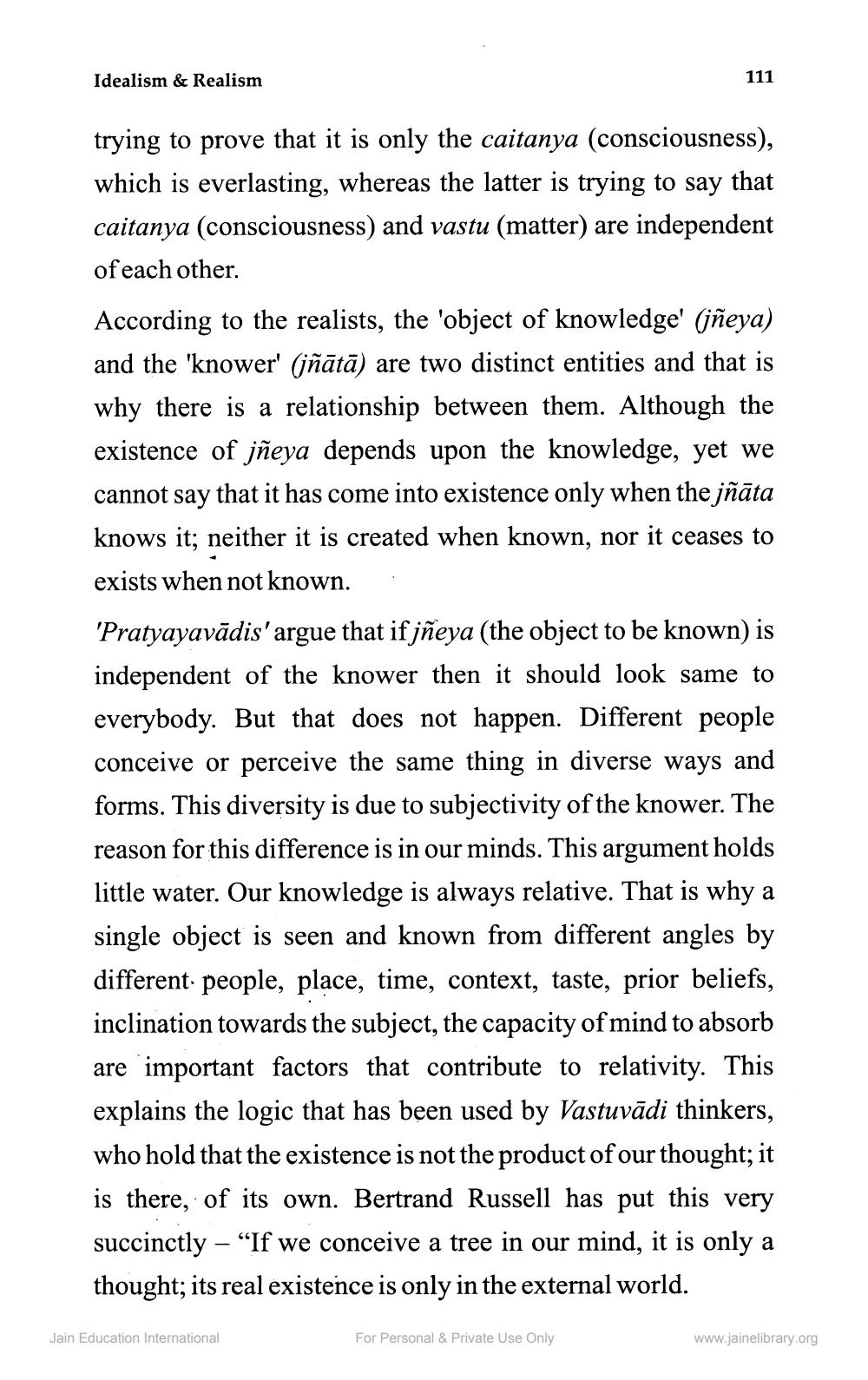________________
Idealism & Realism
111
trying to prove that it is only the caitanya (consciousness), which is everlasting, whereas the latter is trying to say that caitanya (consciousness) and vastu (matter) are independent of each other. According to the realists, the 'object of knowledge' (jñeya) and the 'knower' (jñātā) are two distinct entities and that is why there is a relationship between them. Although the existence of jñeya depends upon the knowledge, yet we cannot say that it has come into existence only when the jñāta knows it; neither it is created when known, nor it ceases to exists when not known. . 'Pratyayavādis'argue that ifjñeya (the object to be known) is independent of the knower then it should look same to everybody. But that does not happen. Different people conceive or perceive the same thing in diverse ways and forms. This diversity is due to subjectivity of the knower. The reason for this difference is in our minds. This argument holds little water. Our knowledge is always relative. That is why a single object is seen and known from different angles by different people, place, time, context, taste, prior beliefs, inclination towards the subject, the capacity of mind to absorb are important factors that contribute to relativity. This explains the logic that has been used by Vastuvādi thinkers, who hold that the existence is not the product of our thought; it is there, of its own. Bertrand Russell has put this very succinctly – “If we conceive a tree in our mind, it is only a thought; its real existence is only in the external world.
Jain Education International
For Personal & Private Use Only
www.jainelibrary.org




